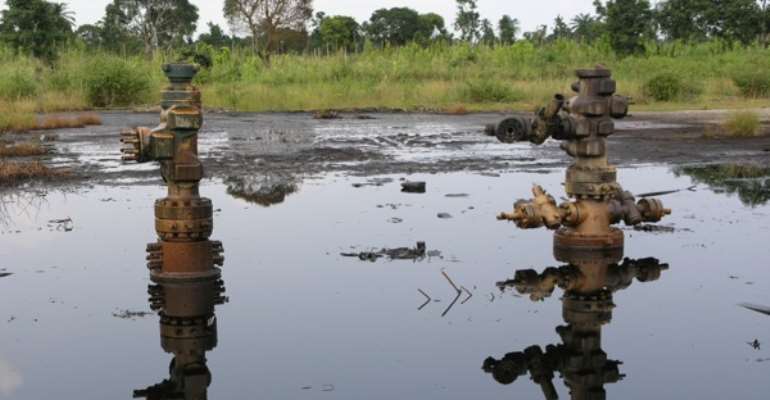Pollution: ECOWAS Court Adjourns Case Against Shell, ELF, Others

ABUJA, Sept 20, (THEWILL) - The ECOWAS Court of Justice sitting in Abuja Monday adjourned to November 30, 2010 for ruling on the preliminary objections in the case instituted by the Socio-Economic Rights and Accountability Project (SERAP) against seven oil companies in Nigeria, and the Federal Government.
The oil companies involved in the case are: Shell Petroleum Development Company (SPDC); Nigerian National Petroleum Corporation (NNPC); Elf Petroleum Nigeria Ltd; Chevron Oil Nigeria Plc; Agip Nigeria PLC; Total Nigeria PLC and ExxonMobil Corporation. All the companies had filed preliminary objections rejecting the power and jurisdiction of the ECOWAS Community Court of Justice in Abuja to hear the suit.
The suit was filed last year by Mr. Femi Falana on behalf of the registered trustees of SERAP.
At the hearing before the Court today, counsel argued on the preliminary objections on the basis of their written addresses filed before the Community Court.
The Defendants argued that, "SERAP is not a legal person under Nigerian law and as such has no capacity to institute the suit. It was also argued the Community Court of Justice of the ECOWAS is also incompetent to adjudicate the suit because oil companies are neither members of ECOWAS nor Community Institutions and are not otherwise subject to the jurisdiction of the Community Court of Justice. They also said that the case is statute barred."
SERAP Executive Director Mr. Adetokunbo Mumuni, leading Sola Egbeyinka for the Applicant asked the Court to dismiss the Defendants’ objections because their arguments are "fundamentally flawed, based on outdated or mistaken principles of law; and cannot be sustained having regard to sound legal reasoning established by the ECOWAS Court’s own jurisprudence, and other national and international legal jurisprudence."
The Court rejected the attempt by the Federal Government to make oral argument on the grounds that the government had failed to file a written address. However, the Court granted SERAP leave to file supplementary brief of argument in support of its application in spite of opposition and objections by the Defendants’ counsel led by Professor Dafe Aktedeye (SAN) for the NNPC; Professor Fidelis Oditah (QC) (SAN) for Shell; and Mrs SA Essien (SAN) for Elf Petroleum Nigeria Ltd; Chevron Oil Nigeria Plc; Agip Nigeria PLC; Total Nigeria PLC and ExxonMobil Corporation.
The counsel argued that, "they are from the Niger Delta and that they have not given SERAP any authority to sue over alleged oil spill and human rights violations in the Niger Delta."
In response, Mumuni argued that it was "wrong for the counsel to give evidence from the bar and that in any case there is no document before the court to support the counsel’s statement that they are from the Niger Delta.
SERAP’s case is purely a public interest one, and the organization does not require any authority to file the case. This is the position taken by the ECOWAS Court in the case of SERAP vs. UBEC.
"The issue of locus standi of SERAP has been well settled by the ECOWAS court when it said in the case of SERAP vs. UBEC that in public interest litigation, the plaintiff need not show that he has suffered any personal injury or has a special interest that needs to be protected to have standing," Mumuni further stated further the court."
In the Suit No ECW/CCJ/ APP/08/09, dated July 25, 2009, SERAP had alleged "violations of the right to an adequate standard of living, including the right to food, to work, to health, to water, to life and human dignity, to a clean and healthy environment, and to economic and social development".
The group also said that, "The consequence includes the impact of oil-related pollution and environmental damage on agriculture and fisheries; oil spills and waste materials polluting water used for drinking and other domestic purposes; failure to secure the underlying determinants of health, including a healthy environment, and failure to enforce laws and regulations to protect the environment and prevent pollution."
